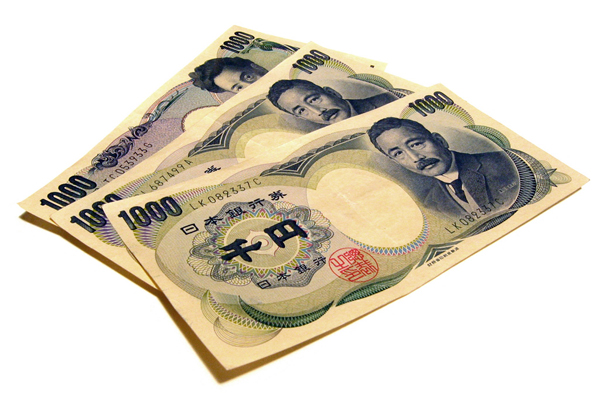Transferring money in and out of Japan is something we all think about from time to time. Whether for business, relocation or saving purposes we would be wise to know a little more about the state of the yen. Peter Lavelle, a currency broker from the UK, shared with us some of his thoughts.
If you’re an expat living in Japan, chances are you’ve had to either bring money in or take money out of the country at some point. If that’s the case, the value of the yen is obviously crucial. So what’s going on with it? In this article, I want to look at what’s happened to the yen since 2008, when we had the financial crash, and what’s likely to affect it going ahead. Hopefully, all that will put you in a better position next time you buy or sell currency.
Since 2008 and the financial crash, the yen has gone gangbusters against most major currencies. For instance:
JPY to USD: a 58.03% rise from 0.0081 to 0.0125
JPY to EUR: a 74.58% rise from 0.0059 to 0.0103
JPY to GBP: a 107.5% rise from 0.004 to 0.0083
That’s some increase in value! And why is that? Well…
- The financial crash, as well as the ensuing kerfuffle with the European debt crisis, has hugely bumped up demand for safe haven currencies. Japan is seen as a large and stable economy on the markets, and hence a safe place to store cash, which means demand for the yen has rocketed.
- Secondly, before the crash, investors bought yen in Japan (where interest rates have been low just about forever to fight deflation) and sold them elsewhere where rates are higher, to benefit from the bump in value. This is what’s called a “carry trade”, and it meant lots of people sold the yen, which kept its value down.
But since the crash, the US Federal Reserve, the Bank of England and a host of other central banks have all cut interest rates close to 0.0%, in an effort to aid their recoveries. That means you can’t do a carry trade with the yen any more, which means fewer people are selling it, raising its value.
And what does all that mean for you?
Well, it means that, if you were an expat in Japan five years ago, you get a lot fewer yen for your dollars or euro today than 2008. On the other hand, if you’re selling yen and buying other currencies, you’re in a much stronger position today. So whether today’s yen strength is good or not really depends on what you’ve got in mind.
What’s next in store?
Where’s the yen headed next? As you may know, the Bank of Japan is not altogether keen on a strong yen. This is because Japan is an island nation (or an archipelago one, to be exact) and hence hugely dependent on exports to fuel its economy. A strong yen therefore does to Japan what a sleeping pill might do to Mike Tyson before a prize fight: destroys all chance of it competing.
Therefore, to keep the yen weak and give Japanese exporters a chance of remaining competitive on the global market, the BoJ has engaged in repeated bouts of what’s called quantitative easing since 2008. This essentially means printing money, flooding the global market with yen which reduces its value because there’s more of it (just like normal products in the supermarket.)
If the yen keeps climbing, it’s more than likely the Bank of Japan will keep printing more currency, just to keep the value down.
What does that mean for you?
It means that, though the yen may continue to climb, its strength will not be unlimited. Hence you’re likely to continue getting good exchange rates when you sell yen for other currency. However that will not continue forever.
Peter Lavelle is a broker at foreign currency exchange Pure FX. He has written for several well-known sites in the global expat community, including culturespain.com, myfrenchlife.org and survivingnjapan.com. He is also a published fiction writer. He currently lives in Madrid with his girlfriend.









